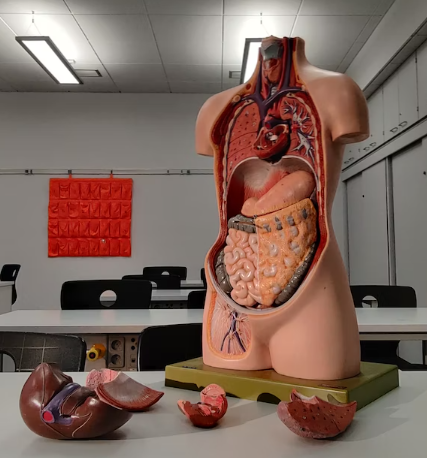Organ Donor

A model of human organs Photo credit: Unsplash
March 29, 2023
Last year, 572 organs were transplanted thanks to donors in New Jersey. More than 2.7 million are enlisted in New Jersey as organ and tissue donors, ranking this state as fourth in the United States. Most of the time, you’re at the DMV, trying to get your license and get caught off guard with a very important question, “Do you want to be an organ Donor?”
The United Network for Organ Sharing oversees the national waiting list for patients who are waiting for their transplants. The United Network looks at the lists to see which organ donors match their blood type, size, and weight. While race and ethnicity are not factors in matching a donor with someone in need of a transplant, sharing the same ethnic and racial group can result in greater compatibility involving tissue and blood types.
According to njsharingnetwork.org, “…one donor can save up to eight lives which is why organ donors are in huge demand.”
People need organ donors because the recipient’s organs either failed or were damaged, which is why they are necessary.
Organ donation is common because people are willing to help others, however, the process is slow, especially after the pandemic.
Scientists need to do more research on COVID-19 before people donate. They are focused on how to reduce the number of cases which is why donors significantly decreased.
People who received organ donations have another chance of hope to live a better and healthier life.
Many minorities have a lack of trust in health professionals that stems from inequalities which results in less organ donations. Organ donation organizations and government health agencies have expressed concern about the racial gap.
According to nj.com, “Organ donations in New Jersey have rebounded from a drop in the first year of the pandemic, but greater outreach efforts must be made in the Black community…”
Individuals should consider organ donation because it saves other people’s lives and those people will have the ability to spend more time with their precious loved ones. People need to come together and raise awareness about organ donations.
Researching the transplant process can help everyone stay educated on the true information and misconceptions.
The process is really as easy as it seems but is an extremely important decision. If you are registered as a donor, you have the potential to save many lives and reduce waiting lists for multiple organs.
At the DMV, there is an option to donate right then and there. Putting you on the spot, knowing that there is someone out there who might need your organs. So that leaves you to make the ultimate decision of whether or not to donate.